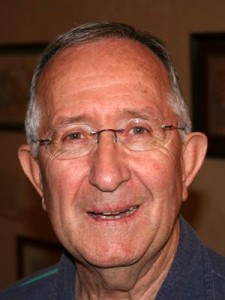A city pastor in a country church. After feeling called to preach and being in my early years of preparation, I was led to pastor a country church. I was a city boy and had never spent much time on a farm. That became evident as I got oriented to pastoring a country church. There were no signs to tell what time church started.
On the first Sunday, toward evening in Daylight Saving Time, I asked a group of the men talking outside what time church would start. They all laughed. Then the chairman of deacons said, “It starts about dark-thirty.”
I had lived by a clock and deadlines all of my life, so I wasn’t prepared for a clock-less Sunday starting time. The farmers explained to me that the cows couldn’t tell the difference in Daylight Saving Time or Standard Time. They just needed to be milked when they were full of milk. I soon adjusted to life by the sun and not a clock.
Lessons learned. We were in a peanut-farming area. As a commuting pastor and family, we ate and stayed with a different church family every Sunday.
Being naturally curious, I asked one of the families how many peanuts they got for their efforts. The patriarch of the family said that most of the folks around got about 28 bushels per acre. He added, but we get about 80-85 bushels per acre.
I wanted to know about that, so I asked. The farmer said, “We irrigate!” Since then, I’ve learned that the location of soil country, the kind of soil and other factors reveal that peanut-farming is a science. But as a young city-boy pastor, I got paid in peanuts and appreciated that. Oh, they paid me $40 a week; so the peanuts were extra.
 Parables and peanuts for pastors. Shortly after I began to get oriented on church time and irrigating peanuts, I was preaching through Jesus’ parables. And I came across “The Parable of The Sower.” I was really interested in that some of the sowers planted seed and got 100-fold, 60-fold, or 30-fold. What made the difference? Read Matthew 13:1-9, and part of the difference will become obvious to you — as Jesus’ explanation did to the disciples.
Parables and peanuts for pastors. Shortly after I began to get oriented on church time and irrigating peanuts, I was preaching through Jesus’ parables. And I came across “The Parable of The Sower.” I was really interested in that some of the sowers planted seed and got 100-fold, 60-fold, or 30-fold. What made the difference? Read Matthew 13:1-9, and part of the difference will become obvious to you — as Jesus’ explanation did to the disciples.
Jesus explained that some of the seed fell on the path; and birds swooped down and gobbled them up. Some seed fell on shallow stony ground and didn’t get rooted to bear the sun’s heat. Other seed got sown where thorns were thick and would choke out the seed. But then Jesus told about the uniformly good seed that got sown in the rich, pure ground and would bear the crops of 100-fold, 60-fold, 30-fold. Even this city-boy pastor could see that the difference in the crop lay in the nature of the soil.
Changing the soil. In another church I pastored, one of the men owned a company filled with different kinds of products designed to change soil and make it most productive. He sold seed, fertilizer, nutrients such as nitrogen and other elements to change the very nature of the soil that the farmers would plant their seed in.
After the Sunday meal in the home of a family we ate with, I was getting ready to go out when the man of the house asked me where I was going. I gave him the name of a family and told him I was going there to visit and see if I couldn’t help them get straightened out. He smiled slightly and said, “Well, good luck; they’ve been crooked for a long time.”
That “crooked” family still wasn’t straight when I left that church, but I had learned that part of a pastor’s preparation to answer his calling is to learn how to work with the soil he inherits — and much more.
Most any pastor with some experience can tell you about churches he’s pastored where the soil was like the soil Jesus described that wouldn’t bear much fruit. Other pastors might be able to testify of revivals and great crops of fruit in folks saved.
Every person called to be a pastor needs to prepare for all the kinds of soil he might find in churches he will serve. Pastors who are truly saved, hearing God’s call to pastor and then say yes to it, will find resources to prepare for pastoring. A lot of that preparation will be in the Bible, in good commentaries and through what they learn from Bible professors, laymen in churches and in their own faithfulness to the gospel and seeing how God’s Spirit empowers them to do all things in Christ (Philippians 4:13).
And if a pastor sticks with his calling, he will learn that the quantity of the fruit and the quality of the fruit depends on the Holy Spirit. He will also learn that the Holy Spirit uses pastors who will love the Lord, feed the lambs, shepherd the sheep and perhaps learn that God in His Spirit can also change the soil where gospel seed is planted.
Interlude: Earlier in a B&R edition (Aug. 31 issue), I wrote about “A Call to Pastor Is a Call to Prepare.” This sharing now is an interlude that shows pastors are to be so committed that they will stay with God’s calling for the long haul, regardless of the results.
But, the reason this is an interlude is because my next article will focus on older pastors and mentors in the ministry to help younger pastors grow in spiritual stature and effectiveness. God can use veterans and seniors in the ministry to mentor younger ministers while ministering to their own flocks. B&R — Copyright by Johnnie C Godwin, 2022

